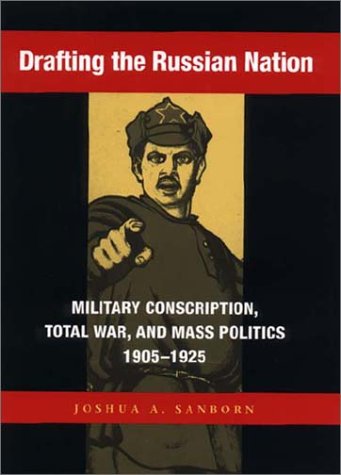

Most ebook files are in PDF format, so you can easily read them using various software such as Foxit Reader or directly on the Google Chrome browser.
Some ebook files are released by publishers in other formats such as .awz, .mobi, .epub, .fb2, etc. You may need to install specific software to read these formats on mobile/PC, such as Calibre.
Please read the tutorial at this link: https://ebookbell.com/faq
We offer FREE conversion to the popular formats you request; however, this may take some time. Therefore, right after payment, please email us, and we will try to provide the service as quickly as possible.
For some exceptional file formats or broken links (if any), please refrain from opening any disputes. Instead, email us first, and we will try to assist within a maximum of 6 hours.
EbookBell Team

4.8
74 reviewsHow did Russia develop a modern national identity, and what role did the military play? Sanborn examines tsarist and Soviet armies of the early twentieth century to show how military conscription helped to bind citizens and soldiers into a modern political community. The experience of total war, he shows, provided the means by which this multiethnic and multiclass community was constructed and tested.
Drafting the Russian Nation is the first archivally based study of the relationship between military conscription and nation-building in a European country. Stressing the importance of violence to national political consciousness, Sanborn shows how national identity was formed and maintained through the organized practice of violence. The cultural dimensions of the "military body" are explored as well, especially in relation to the nationalization of masculinity.
The process of nation-building set in motion by military reformers culminated in World War I, when ethnically diverse conscripts fought together in total war to preserve their national territory. In the ensuing Civil War, the army's effort was directed mainly toward killing the political opposition within the "nation." While these complex conflicts enabled the Bolsheviks to rise to power, the massive violence of war even more fundamentally constituted national political life.
Not all minorities were easily assimilated. The attempt to conscript natives of Central Asia for military service in 1916 proved disastrous, for example. Jews, also identified as non-nationals, were conscripted but suffered intense discrimination within the armed forces because they were deemed to be inherently unreliable and potentially disloyal.
Drafting the Russian Nation is rich with insights into the relation of war to national life. Students of war and society in the twentieth century will find much of interest in this provocative study.